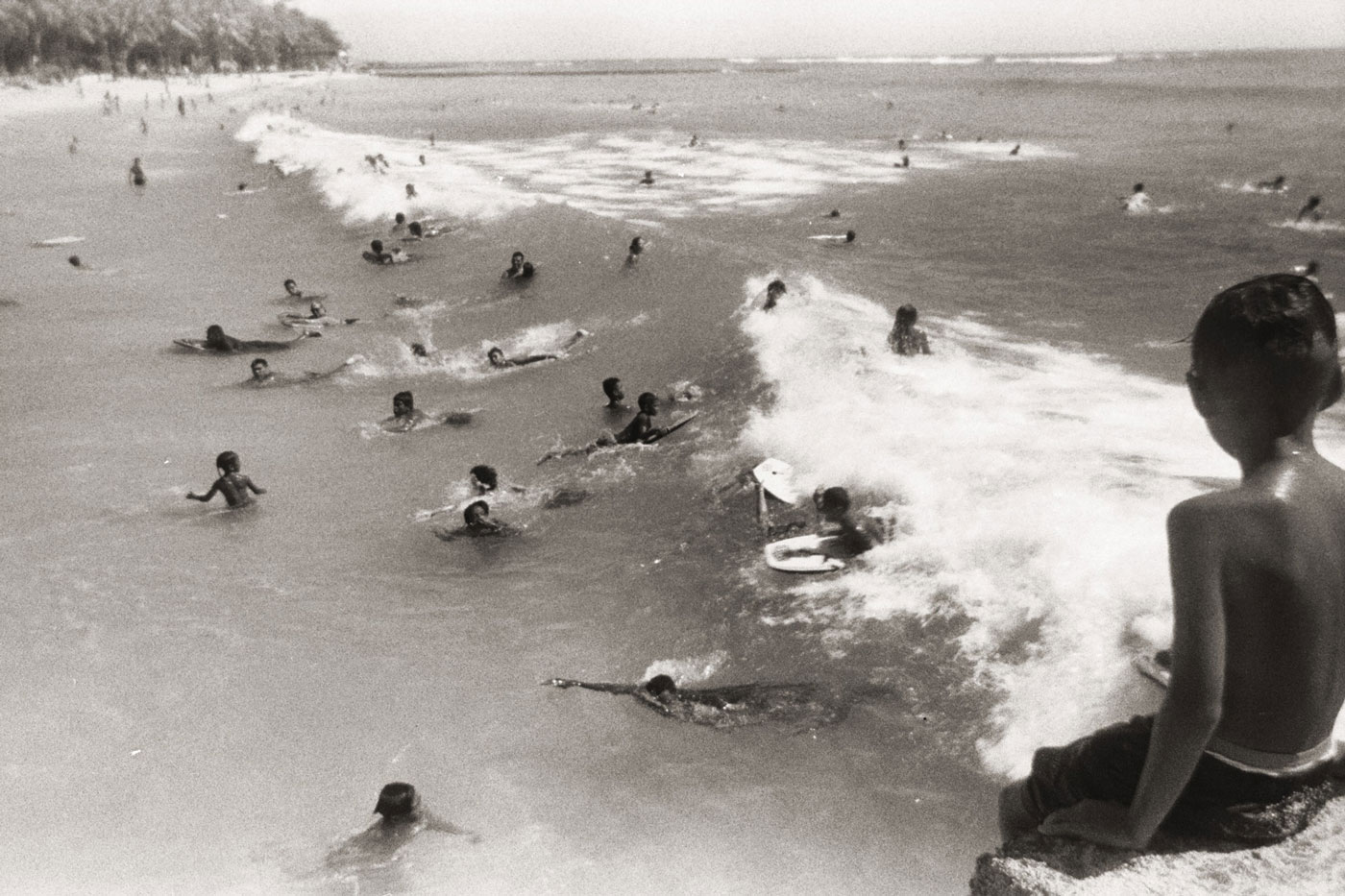In the Odyssey, Homer wrote, “Nothing is as beautiful as a man’s own world, even if it can be held in the palm of his hand.” I feel that way about my islands of Hawai‘i Nei. On a world map, they appear miniscule, like morsels stored in a great wet cheek. Yet these islands are my genesis, the place that formed and nourished me and my Polynesian ancestors going back almost 2,000 years.
I am hapa haole, half white. My mother, Emma Kealoha Awa‘awa Kanoho Houghtailing, was a full-blooded Hawaiian; my father, Braxton Bragg Davenport, was a U.S. Navy sailor from Alabama.
They met by accident, fell in love, and against my maternal grandfather’s wishes, ran off and got married. My father had promised to show her the great cities of America, but all she saw were military bases, while he manned guns on battleships during World War II and then the Korean War. Mother died very young. I suspect the long separation from her islands broke her heart. Still a child, I was sent home to Hawai‘i, where I was blessed to be raised by my family in Kalihi. Though I have traveled extensively, Hawai‘i is the only place I have ever called home.

Each time I begin a novel about Hawai‘i, like all keiki o ka ‘āina, children of the land, I am blessed with the incredible wealth of our Polynesian heritage—legends, mysteries, lore—to draw upon. I wrote the first chapter of my first novel about Hawai‘i, Shark Dialogues, at the Manago Hotel in Captain Cook on Hawai‘i Island. Since then, I have begun each of my novels at the Manago. It has become an almost sacred ritual for me. Built in 1917, the hotel is still run by the founder’s grandson Dwight Manago, a gracious man who takes great pride in maintaining this unique landmark of “old Hawai‘i.”
Late at night, I gaze out at the sea and contemplate 100 years of history that this hotel has been part of, all that has transpired. As I begin each novel, I feel the breath of the past whispering, “Write with good conscience. Be true. Ha‘ina mai ana ka puana!” Let the story be told!
It’s been more than 20 years since Shark Dialogues was published. After publishing seven more novels and three volumes of Pacific stories, I have come back to Shark Dialogues. Through the years, I received hundreds of letters from readers, asking me what happened to the four cousins in the novel. Would I ever write a sequel? I reply that life doesn’t give us all the answers. Neither should books.
Still, with our entry into the new millennium, I began to see how global issues were drastically affecting Hawai‘i. And with Hawaiians now debating the construction of the Thirty Meter Telescope on our sacred mountain Maunakea, I understand that it is time to bring my characters into the 21st century.
Hawaiians are incredibly divided over the telescope. It is expected to be 18 stories tall, which some feel would desecrate Maunakea. Others feel it will bring Hawai‘i great status, propelling us to the forefront of unraveling the mysteries of the universe. Perhaps. But what will it do for the average Hawaiian? Create more jobs? Give our children better educations? The telescope has become a lightning rod for issues Hawaiians have struggled with for decades: Loss of identity, loss of culture. Theft of our lands, our water rights.

Conversely, there are moments of great pride among Hawaiians. Recently, we celebrated the homecoming of Hōkūle‘a, our flagship voyaging canoe that had sailed around the entire globe with its crew using only the stars and wave currents to guide them, like our ancient Polynesian ancestors who almost 2,000 years ago crossed the Pacific and discovered new islands. It took Hōkūle‘a three years to circle the globe, crossing 60,000 nautical miles, stopping in 86 different ports, and meeting 26 different nations in their Mālama Honua Worldwide Voyage, bringing the world aloha from Hawai‘i and promoting a global movement toward a more sustainable world. Mālama Honua: a journey to save the Earth.
Thus, in my pihana, my conclusion to Shark Dialogues, I am hoping to portray how, in spite of our tragic past, our century of still unsolved issues, and the threat of the Thirty Meter Telescope on Mauna Kea, there is still great pride in the spirit of Hawaiians, as evidenced by our Mālama Honua voyage. Like our ancestors, with nothing but faith, mana‘o! and fire in their hearts, Hawaiians achieved the unthinkable. This is why I write about my islands. My people compel me. Ha‘ina mai ana ka puana! Let their story be told.

Kiana Davenport is the author of the internationally bestselling novels Shark Dialogues, Song of the Exile, House of Many Gods, The Spy Lover, and most recently, The Soul Ajar. She is also the author of the short story collections House of Skin Prize-Winning Stories; Cannibal Nights, Pacific Stories Volume II; and Opium Dreams, Pacific Stories Volume III. (All three are available as an e-book collection.) She is currently working on a new novel, Mauna Kea. For more information, visit kianadavenport.com.

